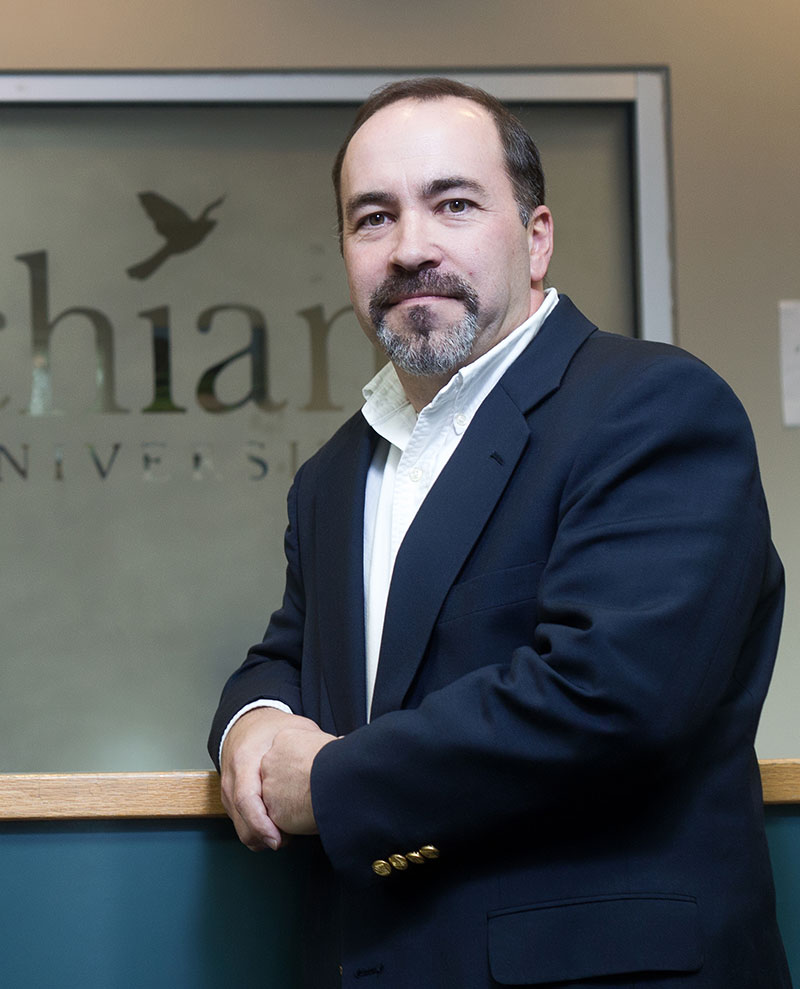Dr. Scott Collier has taught in Appalachian State University’s Department of Health and Exercise Science since 2009. He conducts research on the benefits of exercise on cardiovascular health, with teaching specialties in clinical cardiovascular physiology and vascular biology.
What excites you or inspires you about the field of exercise science?
I am excited about the growth the field has realized over the last 10 years. Exercise Science is a major that has been respected in several clinical professional programs such as Allopathic and Osteopathic medical schools, physical therapy, occupational therapy and physicians assistant, yet our graduates are very successful gaining admittance in higher education. While the growth continues, our field has gained respect as the science of how exercise, or lack of exercise, affects the body.
Why did you choose to come to Appalachian to teach?
I was fortunate to have several job opportunities ranging from all research to all teaching and I picked Appalachian as a mix of both. Having several family members already in North Carolina, Appalachian was also a family move where my children could grow up in a safe college town that appreciates the outdoors and sports, yet also have the ability to appreciate the visual and performing arts.
What is your research specialty and how does it fit into and/or strengthen your teaching?
My research primarily focuses on how the vessels remodel with diseases such as hypertension and how exercise can help prevent or treat the disease in humans. Recently I have completed some studies on sleep and how it changes with stress or pain and how thermal therapy or exercise may help an individual attain better sleep, which in turn will help several clinical conditions. The American Heart Association has cited two of our studies in their position stand on exercise as an alternative therapy for hypertension. This decreases the dependence on pharmaceuticals and all the side effects they elicit. I have over 20 students that participate as research technicians in the Vascular Biology and Autonomic Research Laboratory and since I have been here at App, over 25 of those students have their names on published manuscripts!
The laboratory allows me to teach in a different manner than traditional lectures and lends real life examples to the students. Most of our students go on to professional degrees such as medical school, DPT, PA, OT and their research/teaching experiences in the lab help them gain better interpersonal skills and a better understanding of the physiological functioning of the human body. Also, since my classes are too large to bring to the lab, I video some of the measures we use in the lab so that I can show them in class. The students can then see how the body can make changes to real-world stimuli.
What do you enjoy most about teaching Appalachian students?
We have a very high-level clinical exercise physiology program so our students are academically excellent. Our students come prepared to ask next-step questions to keep the lessons moving forward. Also, our students come in with excellent communication skills so they can talk well with their peers, which leads to greater collaboration.
Why should a student interested in an exercise science degree choose Appalachian, as opposed to another institution?
Our program is one of the top undergrad and master’s degree programs in the nation. Our students gain acceptance into professional clinical programs at high rates, which is due to the academic and lab experiences they have here at Appalachian. They also are encouraged to present their research at regional and national conferences, which again adds to their curriculum vita which really sets them apart from other applicants. For the students who do not seek higher education, we have an excellent reputation throughout North Carolina for knowledgeable graduates who can come into a program and immediately contribute to the mission of their employer. Our Clinical Concentration students have gained employment all over the state in places such as Carolinas HealthCare System, Duke Medical, Chapel Hill Health and Wellness and several research universities that employ research technicians, just to name a few!

